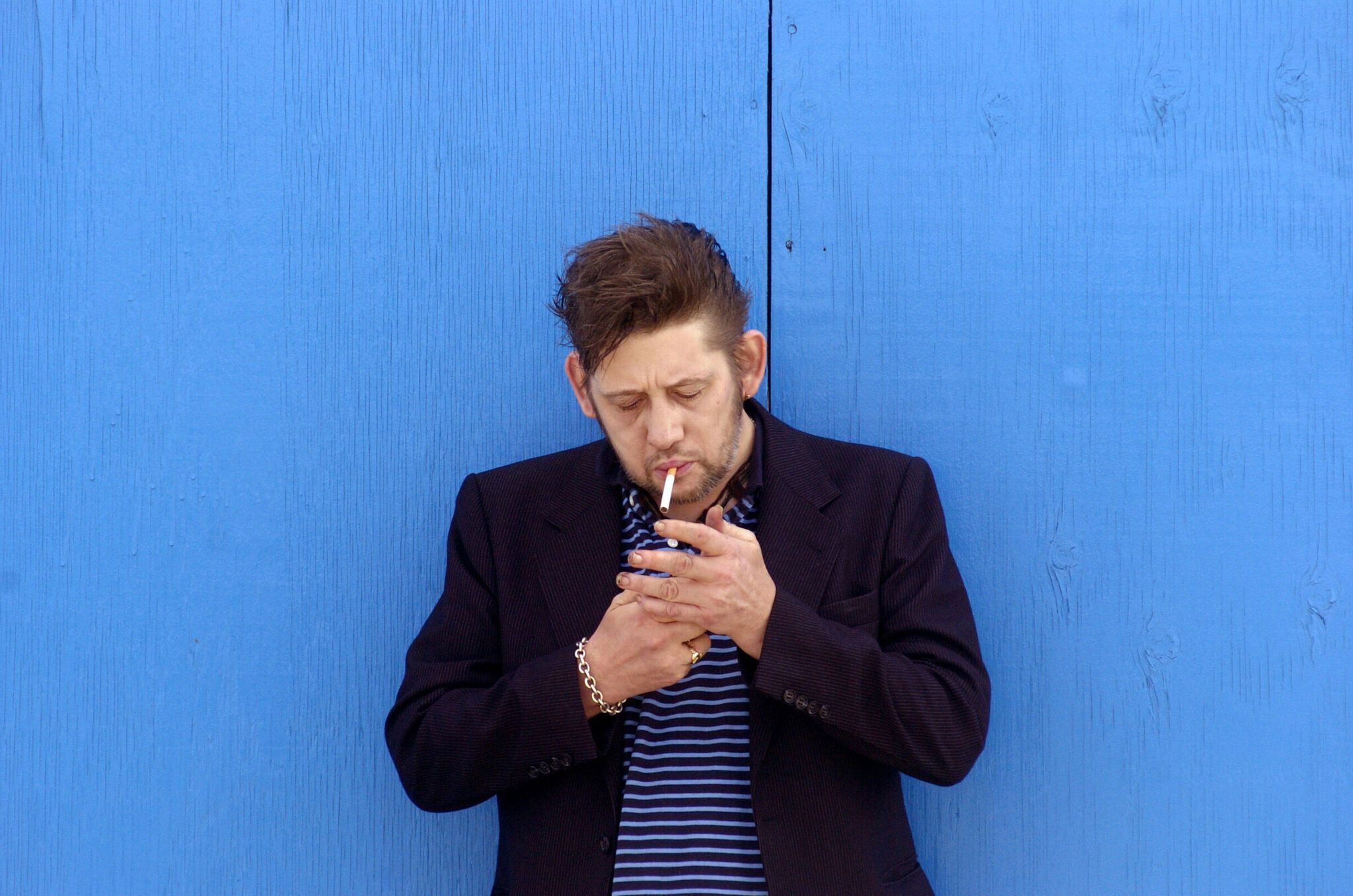It was one of those moments you remember forever.
I was standing stage-side at London’s Brixton Academy with Frank Murray, manager of The Pogues, Steve Lillywhite, their producer, and Joe Strummer.
Black 47 had opened for The Pogues at their 1990 Christmas Show and now Lillywhite’s wife, Kirsty MacColl, was singing "Fairytale of New York" with Shane MacGowan.
The lights were low, just one spot on the couple as a mirror-ball cascaded above them. The lyrics weren’t as familiar then, and I followed the story intently.
On the heartfelt instrumental outro, Shane and Kirsty waltzed for a few bars, smiling at each other. They had scored a knockout. It’s not an easy song to perform, and they had been uncertain of the timing during the sound check.
It was the best I ever heard Shane sing. I wondered if my three companions felt the same. They were much more familiar with his performances. While Lillywhite rushed off to kiss his wife, Murray, Strummer, and I stood there silently, unwilling to allow the magic to fade away.
That moment flashed through my mind when I heard Shane had died. Strummer, Murray, and MacColl have long passed on. Rock ‘n’ Roll is an unforgiving business.
It might sound like heresy, but Shane MacGowan was never cut out for it. You need your wits about you and some modicum of balance to survive intact.
Shane was an original, a bit like Hendrix, Jim Morrison, or Brendan Behan. He had an idea, and he bludgeoned his way through dumb convention to achieve it. Getting his songs right meant everything to him; all else was incidental.
I was familiar with boys like Shane. Many Wexford families had cousins sent home for the summer, their emigrant parents afraid they would run wild on the streets of London.
Meeting him was like a flashback – an Irish face masked by a thick working-class English accent. With one difference: Shane was a poet. His speech might have been slurred, but you only had to read his lyrics to realize that his line stretched back through James Clarence Mangan to Cathal Buí Mac Giolla Ghunna.
Shane might have seemed anarchistic – and he was in life and often in performance – but he polished his lyrics until they were smooth as old paving stones. That’s why they were often as concise and mellifluous as traditional songs.
El inefable villancico “Fairytale of New York” en el funeral de Shane McGowan me da mucha envidia. pic.twitter.com/tT8Gsj0EPR
— Ricardo Sánchez Butragueño (@rsbutragueno) December 9, 2023
He was also an excellent melody writer, something often overlooked; sure, he sometimes strayed into traditional tunes, but you only do that when you’re confident your own lines won’t suffer in comparison.
He once told me he was a traditionalist and only wished to add to the tradition, not advance it, as others have sought to do.
He was well read, and one late night in a bar he elaborated on an idea he had for a story with roots in Ireland’s Civil War. He was very interested in Frank Ryan, the Irish Republican/Spanish Civil War veteran who died in Germany during WW2.
How many people even heard of Frank Ryan before Shane included him in his classic "Sick Bed of Cúchulainn"?
But Shane was a punk too, with little respect for the music business, or its attendant media.
By the late 1980s, the once Punky Pogues had, of necessity, become part of the music business. And as you get more successful and popular you need to be perennially on the road to make a living and stay ahead of the costs. It’s just the nature of the game.
In those last years with The Pogues Shane was a sick man. Too many people depended on him, and the road had worn him down, as it does everyone, except the cosseted and the cautious.
Booze is free, and everything else is available. Shane should have been at home by a turf fire in Tipperary, safeguarded by friends and family. There he could have wrestled contentedly with his poetry and emerged occasionally for live appearances. But truth be told, that’s just another fairytale. Life in the fast lane is addictive and never that simple.
Shane was an original, a bit like Hendrix, Jim Morrison, or Brendan Behan. He had an idea, and he bludgeoned his way through dumb convention to achieve it. Getting his songs right meant everything to him; all else was incidental.
He’s gone now, his best creative years long behind him, but I’ll always treasure the gift he bestowed when he and Kirsty MacColl nailed "Fairytale of New York" at Brixton Academy. Thanks, man.




